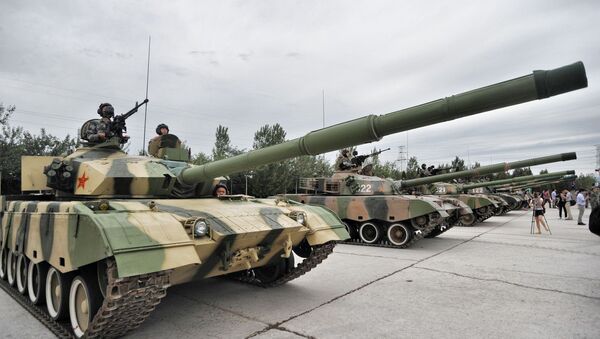According to a report distributed prior to Thursday's opening of an annual session of the National People's Congress (NPC) in Beijing, in 2015 China's defense budget will total $144,2 billion which is 10.1 percent more than in 2014. This represents the smallest increase in Chinese Defense expenditures in the last five years. In 2014, for example, China's defense budget increased by 12.2 percent reaching some $130 billion.
On Thursday, addressing the NPC, Li Keqiang, the Premier of the State Council of China, confirmed these figures.
"The budget increase only partially reflects Chinese military modernization efforts, as it does not include research and development expenses… does not include acquisition of foreign weaponry. But it sends a powerful message domestically and internationally that national defense policy is a priority," Duchatel, who is the head of SIPRI's China and Global Security Project, said.
"I personally don't think that this should be interpreted as slowing the pace of modernization, which is mostly driven by R&D efforts at this stage. If you look at the curve, the growth rate of expenses has decelerated in recent years but it is still a steady increase," the analyst added.
Vassily Kashin, Senior Research Fellow at the Moscow-based Center for Analysis of Strategies and Technologies, also believes that the slowdown in China's military expenditures growth rate is not of a radical nature.
According to the Russian expert, Beijing is currently rapidly increasing spending on the needs of its Air forces, Navy, military space and strategic missile forces. At the same time, expenditures on Terrestrial forces are growing at a much slower pace.
"The task has been set to turn China into a sea power," Kashin said, adding that Beijing currently conducts its most complicated and largest-scale naval exercises with Russia but remains open to cooperation with the West.
He added, however, that "decades will pass" until China has a Navy able to challenge the United States in the Pacific Ocean.



